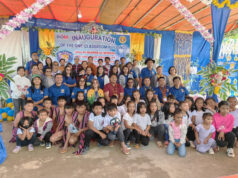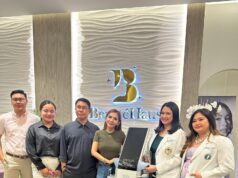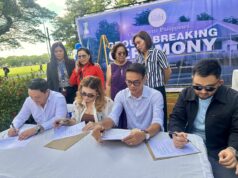SCIENCE CITY OF MUÑOZ – “This Farmers’ Field School has taught me so much about properly taking care of my dairy buff aloes. I am asking everyone here to believe in the full potential of our (dairy) carabaos to produce more milk. Eventually, we will all succeed in this venture if we apply all our learnings”.
So testified Ludivico Guieb of Ayos Lomboy Producers Cooperative (ALPC) of Guimba, Nueva Ecija after receiving his certificate of completion of his 34 sessions in the Farmer Livestock School on Dairy Buffalo Production (FLS-DBP).
Similarly, Emily Velasco of Simula ng Panibagong Bukas Producers Cooperative (Sipbupco) of San Jose City said: “I will definitely regret it if I didn’t enroll in this school. It helped me a lot. Even though I have personal activities to attend to, I always prioritize our FLS schedule to improve my knowledge and skills on dairy production and vermicomposting of the manure.”
They were among the 36 dairy farmers who underwent the 34-week schooling which was conducted every Friday in San Jose City. They included selected farmers from three clusters in San Jose City and the towns of Guimba and Talugtog.
This Farmers Livestock School has been unofficially dubbed as a school-without-walls. It is carried out by the Philippine Carabao Center (PCC) with assistance from Philippine Council for Agriculture, Aquatic, and Natural Resources Research and Development (PCAARRD).
Its companion project is the development of communicators of innovations.
Other participants
These farmers from Nueva Ecija were soon followed by 25 participants from the regional centers of the PCC, local government unit officials, and progressive farmers from South and North Cotabato, Zamboanga del Norte, Zamboanga Sibugay, Bukidnon, La Union, Pangasinan, and Ilocos Norte.
Dr. Eric Palacpac, chief of the PCC Knowledge Management Division and the FLSDBP leader, said the learning event was aimed at enhancing the delivery of extension support, education, and training services (ESETS) of PCC toward participatory technology development and eventual adoption or utilization by village-based dairy buffalo farmers.
“The FLS-DBP project adopted a platform for trainers and participants to learn interactively by exchanging ideas and breaking the teacher-student barrier,” Palacpac said. “It included lectures with actual demonstration, workshops, field exposure and hands-on activities.”
He added that its difference from the traditional school is that it does not need a building.
“It’s a school without walls, a participatory, hands-on, interactive, experiential, adult learning and decision-making approach engaged in by a group of farmers in a training program and conducted right in the farmers’ field or locality,” Palacpac said.
The undertaking is funded by the PCAARRD. It also assisted the PCC in developing the FLS and in the development of the module.
The courses in the FLSDBP are: (1) Preparing Facilitators for FLS Implementation; (2) Mobilizing Communities for FLS; (3) Raising Healthy and Productive Dairy Buffalo; (4) Building Enterprises from Buff alo; (5) Participatory Technology Development; and (6) Participatory Tools to Measure FLS Effects and Impacts.
“As one of the expected outputs of this training, LGU-partners will be the lead implementers of this learning platform in their respective areas with the village-based dairy buffalo farmers as participants,” Palacpac emphasized.
He added that the good thing about this training is that “we do not impose on the farmers to adopt the technologies, instead, they will learn about various technology options and choose and adopt which is (are) appropriate or suitable to their local conditions.”
Communicators of innovations
Corollary to the field school, a mobile team of communicators of innovations has been formed and trained.
“The mobile team aims to capacitate a team of communicators of technologies or innovations on buffalo dairying; mobilize it in the conduct of communication campaign on the said technologies or innovations; measure the rate of technology uptake of dairy buffalo; and determine issues encountered in the process and suggest appropriate recommendations,” Palacpac said.
He added:
“The communicators will do on-farm and house to house visits for each cooperative. Then, they will report the results of their visits to PCC. So, instead of PCC doing the monitoring they, with assistance from progressive farmers, will do it because they know well how to communicate with the farmers.”
These communicators are aides in ensuring that the graduates of the FLS-DBP will really apply what they learned from the school without walls.





